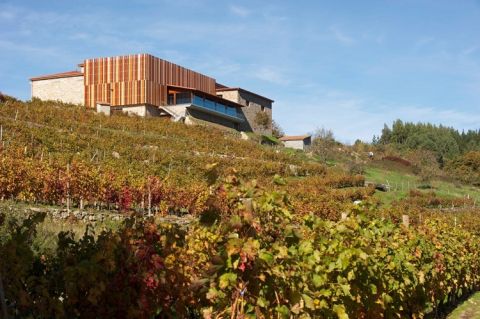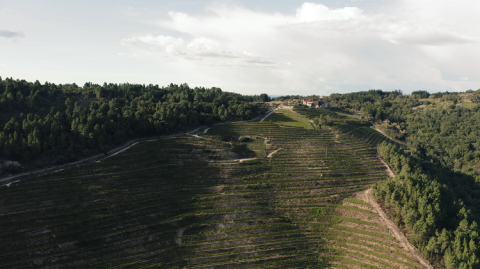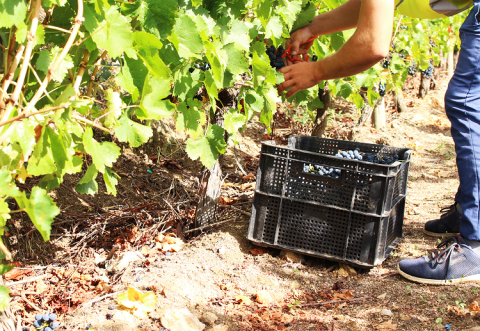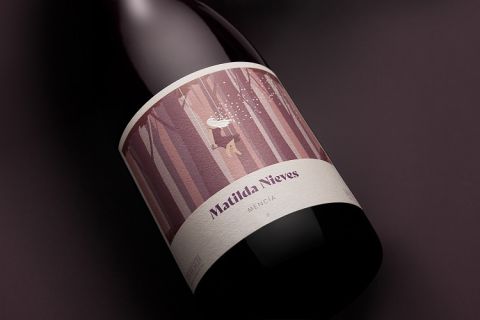From €9.25, 15.15 Swiss francs, $16.98, £13.95
Speaking recently to master sommelier and co-owner of Trivet restaurant in London, I asked Isa Bal which wine regions he thought were under-appreciated. Portugal, he said, and then added, 'and Ribeira Sacra is another'. I couldn't agree more. DO Ribeira Sacra, in the north-west corner of Spain, was founded fairly recently, in 1996. The World Atlas of Wine describes it as making 'Galicia's potentially most interesting red wine in archaic conditions on almost impossibly steep terraces'. Which makes it all the more insane that this delicious red wine costs so little – from only £13.95 in the UK and $16.98 in the US.
Matilda Nieves Mencía is made by an estate called Bodegas Rectoral de Amandi, itself relatively recently established (in 1989), and one of the five Galician wineries belonging to the rather large Bodegas Gallegas group. Which is another anomaly. Rectoral de Amandi is not a small outfit – they own 180 ha (445 acres) of vineyards, work with 400 local growers and make 2 million bottles of wine. So you'd expect most of what they make to be pretty commercial stuff. But perhaps those impossibly steep terraces mean that, no matter how many hectares farmed and bottles of wine produced, everything is done, of necessity, by hand, and therefore it's pretty difficult to make industrial-quality wine.
Ribeira Sacra, with its inland continental climate, is divided into five subregions: Amandi, Chantada, Quiroga-Bibei, Ribeiras do Miño and Ribeiras do Sil, and the grapes in this wine come from vineyards in all five subregions. It's a blend of hand-picked Mencía (85%), Garnacha and Sousón with vines ranging from five to 60 years old, half of them on alluvial soils and slate subsoils, and half on pebbles and granite. I was told by the winery that 'the terraces are very small and impossible to work by machine. The access to harvest the grapes is usually along paths and sometimes even by the river.' The grapes are destemmed and spontaneously fermented in large stainless-steel tanks at temperatures between 25 and 28 °C (77–82 °F) for 15 days. It doesn't see any oak. It's a neat 13% alcohol, total acidity is around 5 g/l and residual sugar is under 1 g/l. (Matilda Nieves is, by the way, the granddaughter of one of the founders.)
It is a wine that I could only describe as impishly delicious. Joyous fruit on the nose, black cherries, elderberries, liquorice and caraway on the palate. It has notes of rose petals and menthol with rosemary-herbal freshness and is full of sweet, juicy acidity. There is also a subtle stony edge to it, which draws out the length and makes it even more mouth-watering. For less than £14, you'd expect a wine to be fun, but not really complex. This is both. It way overdelivers.
In her Wine Dine Dictionary Victoria Moore suggests that Mencía is a good wine to have with the local stuffed bread (Galician empanada), roast cod and lentils, or slow-roasted shoulder of pork. But it's the kind of wine that would go with pretty much everything, because the balance of fruit, body, tannins and acidity is just right for food. We had it with a smoked leg of lamb, roast honeydew squash and a spicy gremolata. The wine disappeared as quickly as the food!
It's available in Spain, Portugal, Germany, Austria, the Netherlands, Switzerland, the US (FL, CA) and although they're not listed on Wine-searcher, Exel is the sole UK stockist.
For more Mencía love, take a look at these articles.
















